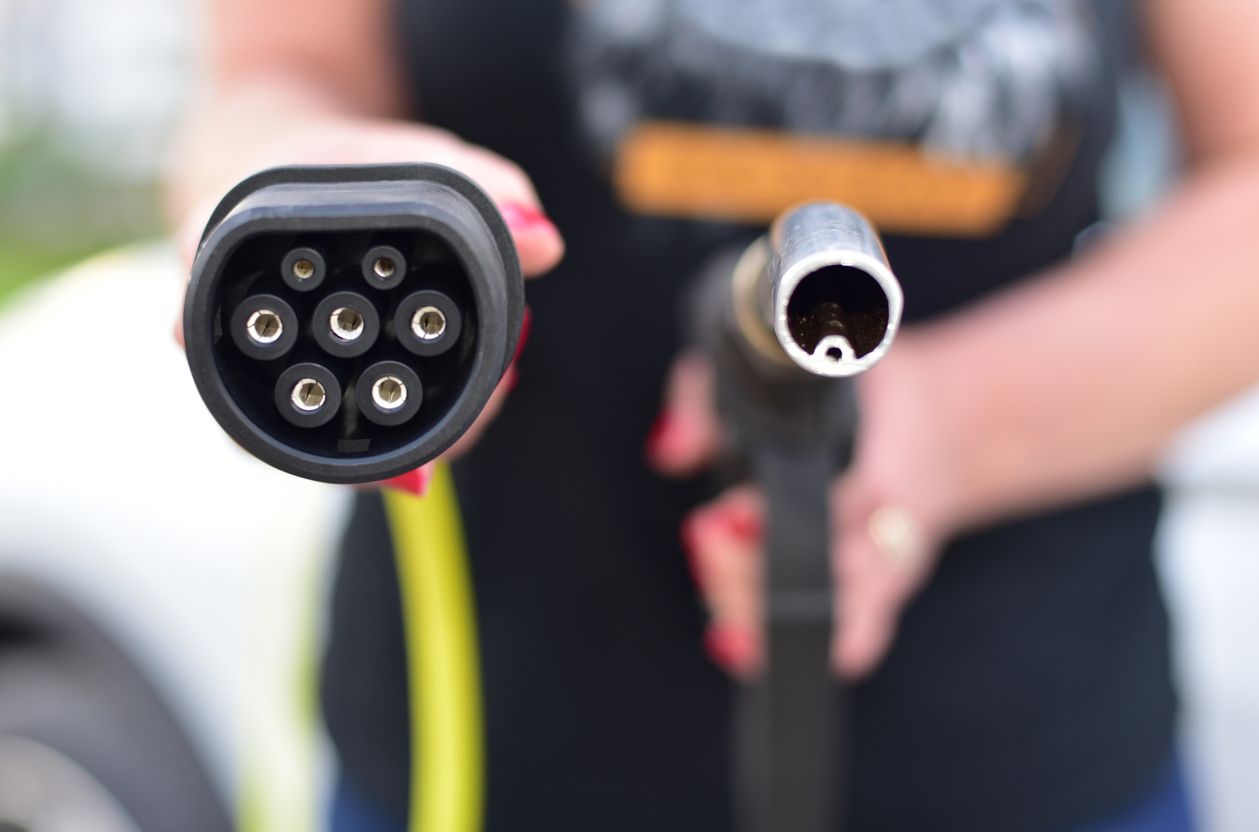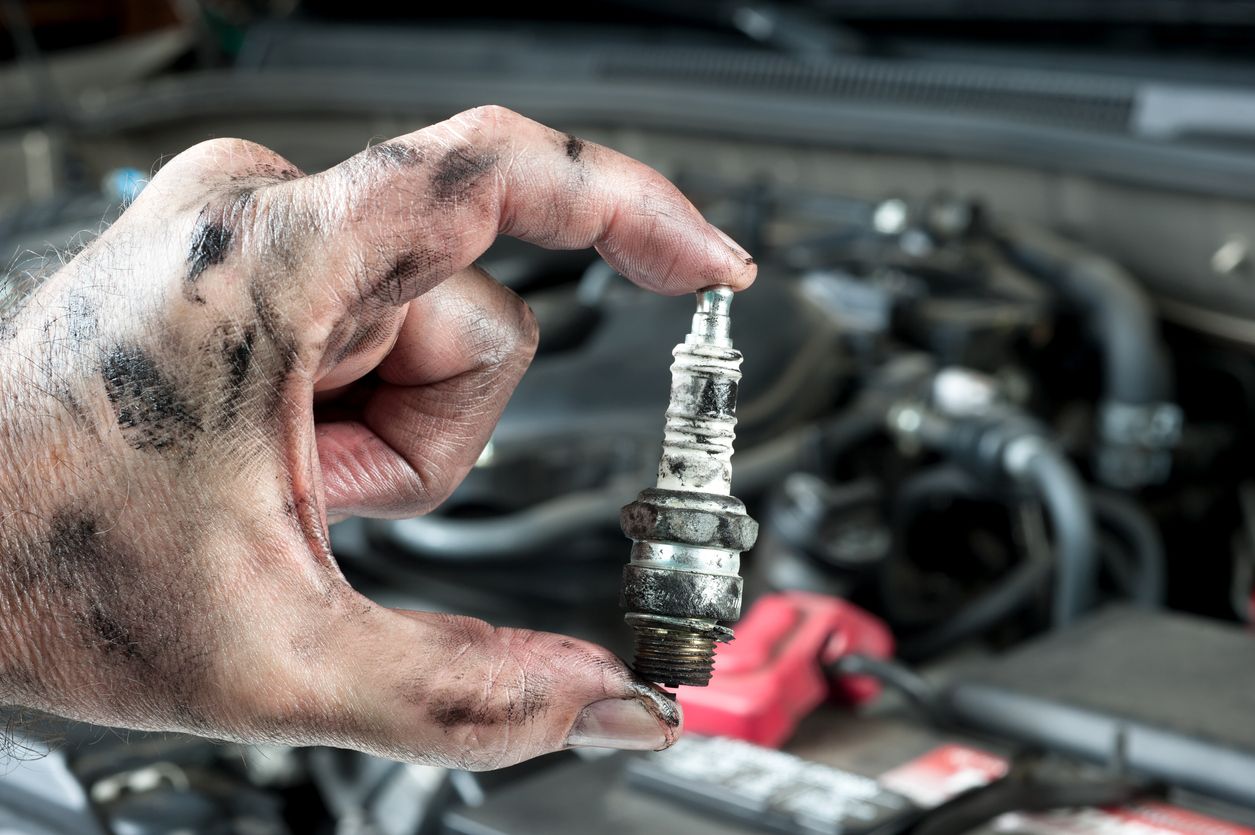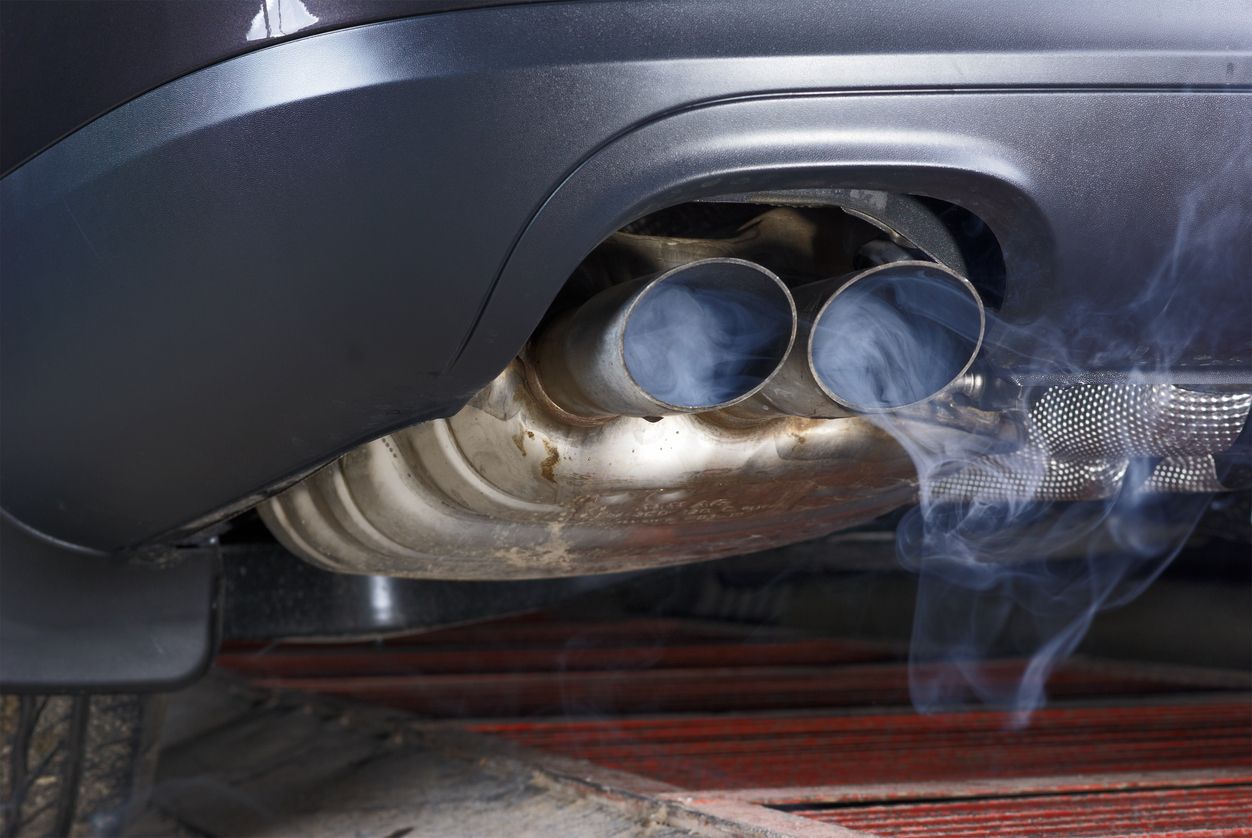When it comes to vehicle maintenance, understanding the differences between electric, hybrid, and gas-powered cars is essential. In this installment of our "Ask the Expert" blog series, we sat down with Matt Zimmerman, Firestone Complete Auto Care’s resident hybrid and electric vehicle expert and lead technician, to get a comprehensive breakdown of how servicing these vehicles differs.
Previously, Matt debunked common EV and hybrid myths and shared his experiences working on these cutting-edge vehicles as an auto technician. Today, he dives into the nuts and bolts of maintaining electric, hybrid, and traditional internal combustion engine (ICE) vehicles.
Hybrid Cars vs Electric Cars: How Do Servicing These Vehicles Differ?
Hybrid Vehicles
While hybrid and electric cars both rely on batteries, their servicing needs can be worlds apart. For hybrid cars, "you're looking at a combination of Internal Combustion Engine (ICE) and Electric Vehicle (EV) components," Matt states. This means servicing can include tasks like oil changes, spark plug replacements, and routine belt inspections—just like ICE vehicles. At the same time, you also need to keep an eye on the battery's health and electrical systems.
Matt also emphasized that fuel system services are the primary aspect of hybrid car maintenance. Because their intake valve stays open longer, carbon build-up can occur inside the engine, causing misfires and other issues.
Electric Vehicles
Electric cars, on the other hand, eliminate many of the traditional maintenance tasks. There’s often no oil to change, no belts or spark plugs to inspect, and of course, no fuel system care involved. In fact, there's more emphasis on the cooling systems for the battery packs and the condition of the hydraulic oil and transmission in an electric vehicle, Matt highlights. This is because a lot of EV work is just about preventing heat-associated damage and keeping the electronics cool.
Overall, electric vehicle maintenance schedules tend to focus heavily on the health of the battery and cooling systems. Regular trips to an electric vehicle service center are vital for ensuring all systems operate efficiently.
Matt also explained that electric vehicles need more care as they age. The older they get, "the more you want to start stress-testing the battery packs." A failing battery pack can cause your motor, generator, and power inverter to work harder to compensate for the weak battery. This can lead to excessive current regulation, causing the power inverter to overheat, the drive motor to become askew, and all sorts of other performance issues.
"While electric machines are very efficient and designed to last, maintenance and making sure you can keep these systems cool and efficient are key."
Electric vs Hybrid vs Gas: How Electric and Hybrid Vehicle Maintenance Differs From ICEs
There’s more to EV and hybrid maintenance than meets the eye. Unlike traditional internal combustion engines, EVs and hybrids have their own sets of needs. When asked about the differences in servicing ICE vehicles versus hybrids and EVs, Matt highlighted key distinctions:
1. Diagnostics
Compared to internal combustion engines, hybrid and EV diagnostic trouble codes are less specific, Matt explains. While traditional cars often throw codes that point to specific issues, EVs and hybrids can be less clear. This ambiguity can require additional research and evaluation from the technician's perspective.
Overall, the main difference when diagnosing issues with a hybrid or electric vehicle is determining whether the high-voltage system needs to be disabled, states Matt—a stark difference compared to ICEs.
2. Cooling System Maintenance
Matt reiterates that excessive heat can have damaging effects on EVs and hybrids, thanks to their abundance of power electronics. Therefore, maintaining the cooling and A/C systems is often more critical to longevity than on a standard gas vehicle. Depending on the particular make and model of your EV, the battery cooling system could also be directly impacted by the A/C system.
3. Tires
Did you know that hybrids and EVs may require different types of tires? Since these vehicles tend to weigh more due to their substantial battery packs, they often need tires that can handle the extra weight without compromising efficiency. In effect, EV and hybrid drivers should more readily prioritize regular tire rotations and wheel alignments to keep their tires wearing evenly and performing optimally.
Fortunately, EV-specific tires, like Bridgestone Turanza EV tires, are a game changer. They're thoroughly tested to help ensure drivers get the most out of their EVs and are designed to complement the unique dynamics of these vehicles
4. Brakes
While brake maintenance on EVs and hybrid vehicles is similar to that of an ICE, the low-voltage electronic park brake on electric and hybrid vehicles will likely need to be disabled or put into 'Service Mode' when navigating the brake system. If this task is not completed first, there are risks to the technician working on it.
EV and hybrid vehicle brakes can typically function properly for about 100,000 miles since a majority of the braking is done through the drive motor and regenerative braking. However, EVs and hybrids with regenerative braking typically still need their brakes inspected at regular intervals to confirm brake pad and brake fluid condition and to inspect and clean or lubricate brake hardware. In instances where regenerative brakes are being diagnosed, the high-voltage system must be powered down—something that is not a concern on ICE vehicles. Matt recommends that technicians always refer to the OEM manufacturer's recommendations to be on the safe side.
5. Repair Costs
While EVs often require less frequent maintenance than ICE vehicles, repairs can be a different story. EV repairs—especially battery replacements—can be pricier than what many drivers are used to, Matt shares. Battery replacement alone can be a significant expense, and if a major system like the inverter needs work, it might mean higher EV repair costs due to the specialized skills and components required.
Matt also highlights that the most costly aspect of servicing a hybrid or EV versus a standard gas vehicle is misdiagnosis. Since the parts and components of battery-pack vehicles are often more expensive, repairing or replacing the wrong one can have a deeper effect on the driver's wallet. "That's why it's important to have these vehicles serviced by a technician you can trust."
The takeaway? No matter what you drive, understanding your vehicle’s maintenance requirements and working with a knowledgeable service center is the key to keeping it running smoothly. Fortunately, a Firestone Complete Auto Care technician will do their due diligence when diagnosing an issue.
Hybrid Cars vs Gas Vehicles: Final Thoughts
Do hybrid cars need tune-ups? What about oil changes? Beyond high-voltage battery maintenance, many hybrids have similar components to an ICE, including the emphasis on fluid care. From their internal combustion engine to the transmission's hydraulic clutches, maintenance of hybrid cars is still similar to that of a gas vehicle.
Want to learn more about hybrid vehicles? Check out our blog on the pros and cons of hybrid vehicles.
Hybrid vs Electric vs Gas Vehicles: Firestone Complete Auto Care Technicians Cover It All
As the market for electric and hybrid vehicles continues to grow, so does the need for knowledgeable service providers. With experts like Matt Zimmerman leading the charge at Firestone Complete Auto Care, drivers can feel confident in maintaining their vehicles.
Whether you’re wondering, ‘What maintenance does an electric car need?’ or looking for a hybrid car service center, we’ve got you covered. Contact your nearest Firestone Complete Auto Care to ensure electric and hybrid vehicle maintenance services are available in your area.



